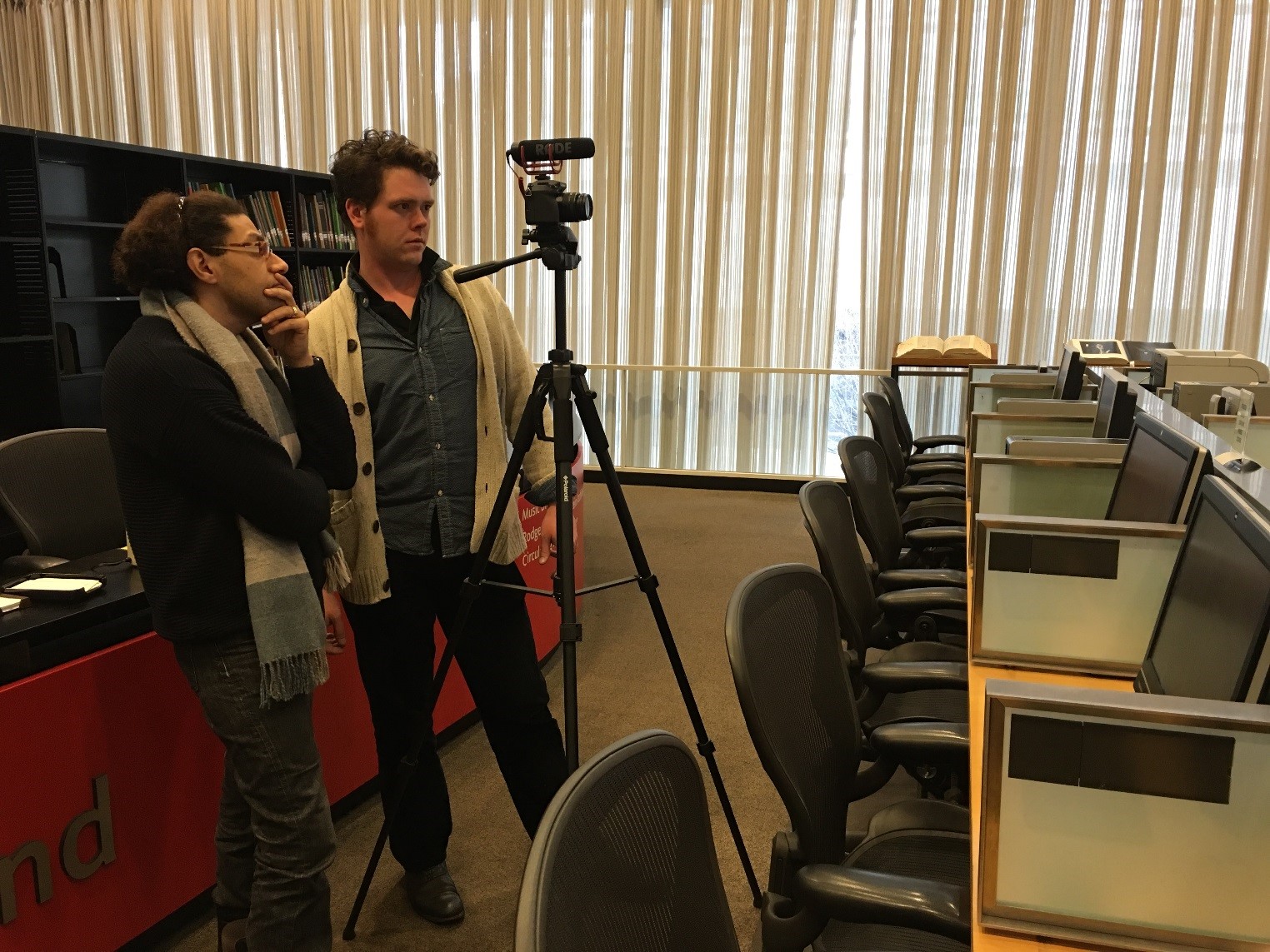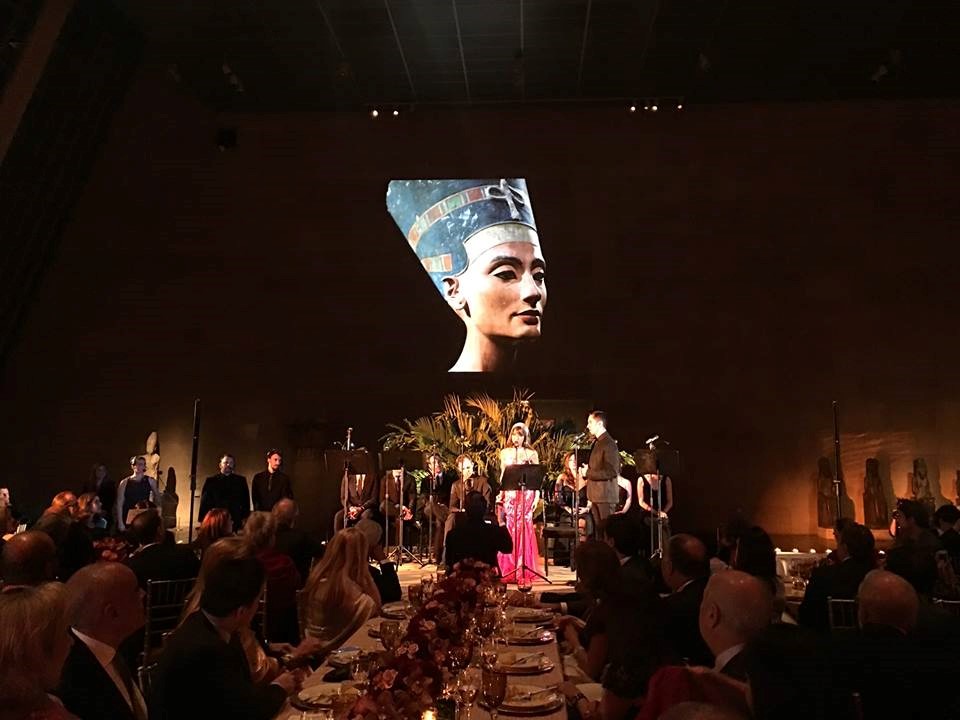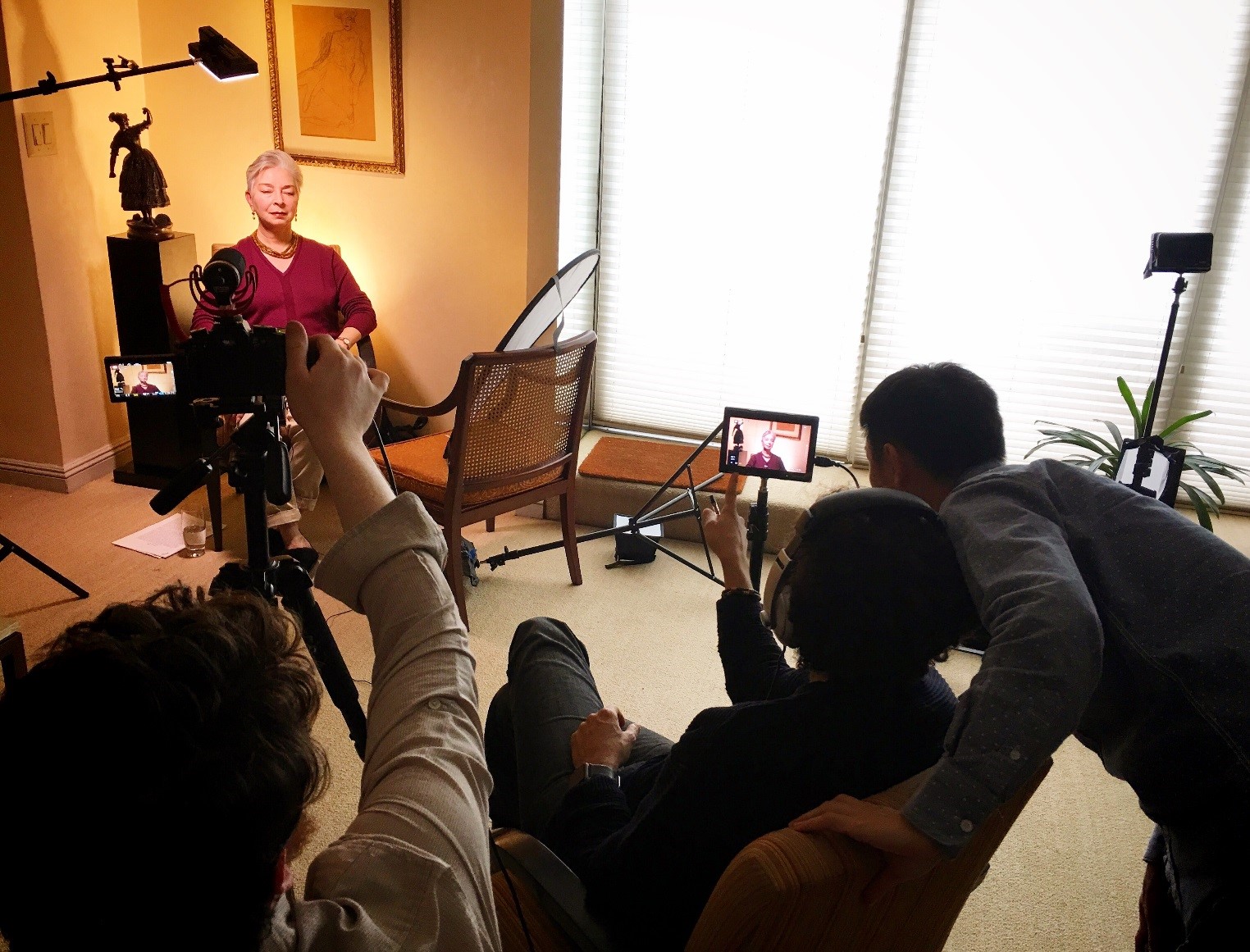Conversations with the Artist on Edge
My Interview with Egyptian director Hisham Abdelkhalek
Neurotic, alert with childlike wonder, Hisham Abdelkhalek is an Egyptian director, adventurer whose love for his home country juxtaposes with his creative spark. Abdelkhalek directed and produced French movies backed up by French production companies to represent Egypt. His Instagram shows his nostalgia for a cosmopolitan Egypt and the traditional Egyptian cuisine.
“My artistic influence is mainly Youssef Chahine whom I consider one of the greatest thinkers of our time. He was heavily involved in portraying the real Egypt and that is why he succeeded worldwide. However, I personally do not like to disclose my artistic influences because I love to prove myself as a director apart from whoever affected me.”
Like any other Egyptian dreamer, Abdelkhalek’s career span a decade of filmmaking, art direction for musicals, and short films as experimental as they are poetic. Although he flexes his artistic muscle between mysticism and reality, his documentary “A Footnote in Ballet History?” –which I had the honor of watching and moderating the postscreening Q&A- is not simply a sentimental reminiscence at a cosmopolitan Egypt but more of an homage to great women who have not received their deserved recognition in history.
Abdelkhalek is no fan of small projects. His resume includes a variety of grand projects including the artistic direction of Opera “Aida” in Doha, Qatar and under the pyramids of Giza, Egypt in 2002 as well as the Egyptian Permanent Mission to the UN Gala Event on October 13, 2015 at the Metropolitan Museum of Art.
Akhenaten performance during the UN Gala at the Metropolitan Museum of Art Concert
Akhenaten will be the first pharaonic musical to open at Broadway. It will feature 23 songs with an expected budget of 16 million dollars. This spectacle of songs and ancient pharaonic theological themes showcases performances by major Broadway stars such as Christina DeCicco, William Michals, Ted Keegan, Seph Stanek and Timothy McDevitt. The musical also will include a chilling performance of “O’ my Son” by Broadway favorite N’Kenge.
I have had the pleasure of sitting down with Abdelkhalek in 2016 during the 38th edition of the Cairo International Film Festival (CIFF). He was buzzing with excitement and energy, expressing his opinions openly about the bureaucracy that filmmakers typically face as well as the problems that he personally faced during directing Opera Aida in Egypt in 2002, stating the hierarchy of the Mubarak regime back then as factors behind his decision to travel to Paris where he cofounded his production company So Freakantastik with his friend Olivier Delesse.
“Working during the Mubarak regime I witnessed all forms of corruption on all managerial levels. After “Aida” I decided to leave for good. In Europe I opened a film production company and started making movies. I returned due to a partnership with media and production mogul Isaad Younis’s company Al Arabia Cinema Production and Distribution to distribute Egyptian films in Europe. I have always been keen on spreading films by the great Egyptian directors such as Dawood Abdelsayed and Mohamed Rady all over Europe. I became involved in social and political activism during the Egyptian revolution of 2011 until the Muslim Brotherhood took power where I joined mass protests against the Islamist rule. Right after Islamist president Mohamed Morsy was overthrown, I traveled back to Europe to make art.”
Abdelkhalek is your typical artist on edge. During our meeting he smoked one cigarette after the other, recounting tales from his artistic journey with bitterness, without falling into the pit of despair. When it was time to talk about one of his masterpieces “A Footnote in Ballet History?” his eyes glistened with memories as he spoke of how his project saw the light,
“I was directing Akhenaten The Musical for Broadway in 2013, co-written with Hesham Nazih and Mohamed Metwally, when Ashraf Sewailam the renowned opera singer introduced me to former legendary Egyptian prime ballerina Magda Saleh. Later, while attending a formal dinner after the UN Gala dinner in Egypt’s UN ambassador’s -at the time- house, I met Magda Saleh for the second time as well as her husband. That was when I was smitten by her personality. I wanted to make a film about her since I was already aware of her inspiring history and her career as one of Egypt’s dancers who danced the legendary role of Giselle with the Bolshoi Ballet in Russia.
The idea expanded into archiving the journey of Egypt’s Bolshoi 5; Saleh, Diane Hakak, Aleya Abdel Razek, Wadoud Faizy and Nadia Habib. The film was jointly produced between So Freakantastik and Saudi, American and French collaborators, as well as through crowdfunding which I believe is one of the modern gifts technology presented to aspiring filmmakers. Through crowdfunding, filmmakers and artists could get access to resources they otherwise would not be able to, funding-wise. “A Footnote in Ballet History?” was produced on a budget of more than 100,000 dollars, with $14,000 raised strictly from Indiegogo.”
Legendary Egyptian ballerina Magda Saleh during the shooting of “A Footnote in Ballet History?”
“A Footnote in Ballet History?” did not simply tell an enchanting tale of the 5 ballerinas as they sealed a footprint in Egyptian history through intense training and a life-changing transition to Moscow for formal ballet training at the Bolshoi Ballet company. It also gives due credit to the late Minister of Culture Tharwat Okasha who -right after the 1952 Egyptian revolution- inaugurated the Academy of Arts and the Higher Institute of Ballet in 1959, envisioning it to be a professional artist factory where young men and women are formally educated and trained with global standards of artistry.
“I did not simply want to tell the tale of five butterflies who danced their way to the top, but more of an important period in my country. How Egypt transitioned from the Russian camp to the American camp during the era of late president Anwar El Sadat, how enriching was 1960s Egypt, and how well-educated most people were through reading fan letters sent to Saleh in three languages from all over Egypt.”
Abdelkhalek told me that while editing his film, he had a peculiar feeling of unjustly dismissing the cornerstones of Egypt’s culture.
“It devastates me to notice how the West treats our monuments and heritage with due respect more than we do to ourselves. When the Temple of Dendur was transferred to the Metropolitan Museum of Art in New York, cultural significance was foreseen during the preparation for receiving the temple, including the design as a mythological, religious and symbolic concept. For your information, the Temple of Dendur was where UN Gala Event was held.”
Our interview grew into a longer tale of texting and communicating. I was more than glad to extend it until he reached his culmination through the creation process of his feature debut “Jesus and the Others” starting 2019.
O my son at Egyptian UN Gala night at the Metropolitan Museum of Art
“Jesus and the Others” recounts the Holy Family’s journey in Egypt from a Coptic Orthodox point of view. It is the tale of how the Virgin Mary, Joseph, and Mary’s cousin, Salome, as well as a young Jesus escaped from King Herod into Egypt. The script –by late scriptwriter and novelist Fayez Ghaly- has been rejected on basis of refusal to screen it due to portraying Jesus Christ from a Coptic POV rather than from the POV of the Muslim majority;
“I did not search for the script. It has been present ever since a long time and –like a regular reader- I followed the long struggle to produce the film as well as the copyright and the censorship battles to prevent the making of the film. I was not involved at all in the beginning. Until the screening of my film “A Footnote in Ballet History?” during the 38th edition of CIFF, when Fadi Ghaly –Fawzy Ghaly’s son- offered me the script to read and direct. I was elated that he expressed his vehement insistence that I direct the film.
For a whole year, I left the script in my drawer, afraid that once I started reading it I would be attached to it and immediately seek directing it. I picked this project because it fits the grander scheme of my artistic vision; presenting Egypt to the World. Jesus does not belong to a certain religious group but he is more of a universal icon.”
Abdelkhalek states that the film cannot be produced via an Arabic production company nor shot in Egypt to avoid conflict with the Censorship office or battles on religious basis. However, he insists on using an all-Muslim cast of Arab actors –with the exception of food vlogger and actor Mourad Makram- to emphasize the state of compassion and coexistence between Egypt’s two complements; Copts and Muslims. He intentionally plans a dream cast with actors from all over the world with big names from Hollywood and Europe.
“We opened a fair casting call for three months and I was surprised to find big names from Egypt auditioning. Currently we are lining up our main cast whether Egyptian, Arab, or A-list actors from Hollywood and Europe. Our film crew includes big names in the filmmaking industry globally, such as famed Japanese cinematographer Tetsuo Nagata with names such as La Vie en Rose and Paris, Je t’aime to his name or Jean-Luc Van Damme as co-producer, as well as one of the most talented set designers in America. Our high-profile cast and budget are related to the nature of the film as a foreign production and not an Egyptian production. Shooting will take place between Puglia in Italy due to the ancient nature of the city similar to Jerusalem, Betlehem at the time, as well as in Ouarzazate, Morocco which is the world’s largest studio.”
Abdelkhalek is highly opinionated. He believes that cinema cannot be graded on the basis of art vs. commercialism. Great films receive both critical acclaim and box office success. This is what he is aiming at while directing and producing “Jesus and the Others.”
“There’s no such thing as an artist with a mission or a message that he wants to transmit to the world. We produce entertainment. We want people to be entertained. It’s up to audiences whether they like what they see or they don’t. People don’t ask about the message or the aim of art in the Western world. We, as Arabs, are more concerned with what’s the hidden message or the main theme that a director targets in a film. I personally do not have any message that I want to transmit through my art. However, what I seek is to show the actual image of Egypt culturally and socially to the Western world.”
Jesus and the Others starts shooting in….




Excellent article, Jaylan, covering a lot of territory. Thank you. I look forward to seeing these films.